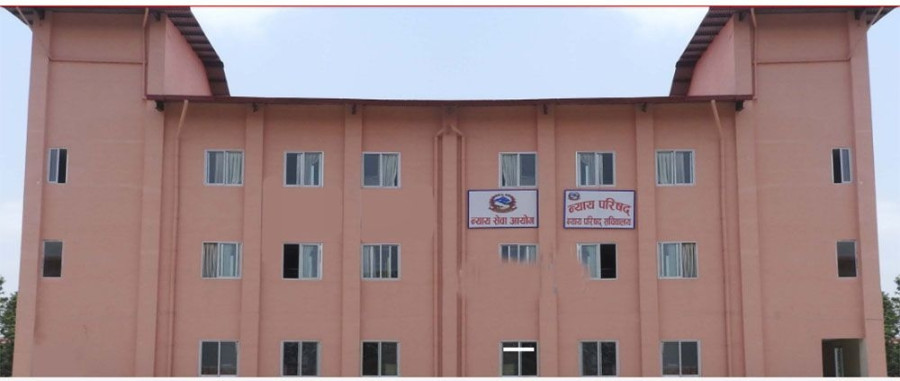National
Legal and constitutional experts find fault with Judicial Council’s structure
Appointment of 18 judges for High Courts and five justices for the Supreme Court by the Judicial Council has met with severe criticism, with legal experts finding fault with the structure of the council itself.
Tika R Pradhan
Appointment of 18 judges for High Courts and five justices for the Supreme Court by the Judicial Council has met with severe criticism, with legal experts finding fault with the structure of the council itself.
They said the council has such a structure where politicians can easily influence decision-making and that if it is not revamped, it could pose a serious threat to the independence of judiciary.
“We cannot expect independent candidates presiding over court proceedings when the Judicial Council is so politically dominated,” said Chandra Kant Gyawali, a senior advocate.
Immediately after the Judicial Council on April 2 appointed judges at courts, there were talks about how they were picked, with many saying there was a “horse-trading” among the ruling Nepal Communist Party, the opposition Nepali Congress and the chief justice.
In the chief justice-led council, majority of members come from political background—law minister, one person nominated by the prime minister and a representative from the Nepal Bar Association. The fifth member is senior-most justice of the Supreme Court.
“It’s high time the existing structure of the Judicial Council was changed,” said Bhimarjun Acharya, an expert on constitutional matters. “If we fail to do so now, it will surely cost the nation dearly.” Calls for structural reform in the council were heard also during the third national conference of judges that concluded last week.
The declaration of the judges conference read: “We are for reviewing the existing set-up of the Judicial Council and developing a mechanism under the chief justice. The mechanism should have justices in majority.” Chief Justice Cholendra Shumsher Rana, however, defended the council’s decisions, saying sometimes there are situations “when undesirable decisions have to be taken.”
The Judicial Council’s concept is not new in Nepal.
The 1990 constitution also had a provision of a five-member judicial council. But that used to have chief justice as the ex-officio chairman and two senior justices and a jurist appointed by then king as members. The first meeting of the Judicial Council held on December 18, 1990 had decided to establish its secretariat.
The 2007 interim constitution gave continuity to the council with a slight modification in its composition. The 2015 constitution did not change the composition of the council, which is still in place.
Acharya, who has vehemently objected to April 2 decision to appoint the judges, said all the members in the council have been doing nothing but politics and that even the chairman, the chief justice, has failed to do justice to the council’s decisions.
Chandeswor Shrestha, the newly elected chairman of Nepal Bar Association, has also called for reforms. “But we need to hold extensive discussions whether to change the entire structure of the council or adopt a different process while appointing the judges,” Shrestha told the Post.
Judicial Council’s decisions have landed in controversy also in the past. Some years ago, newly appointed judges’ visit to the headquarters of then CPN-UML in Balkhu had grabbed media headlines, as they were reported to have gone to express their gratitude to the UML leadership for getting selected.
The recent appointment of judges and justices by the council has come at a time when some sections of legal fraternity, politicians and civil society members have expressed their concerns about the executive’s increasing influence on the judiciary.
“Nepal has adopted a hybrid legal system of civil and common laws, allowing political domination in the judiciary,” said Gyawali, “and this has alarmed many because this threatens the independence of judiciary.”
When the Post reached out to Devendra Raj Dhakal, secretary of the Judicial Council, to seek his statement on the controversy surrounding the judges’ appointment, he declined to comment.




 13.12°C Kathmandu
13.12°C Kathmandu














